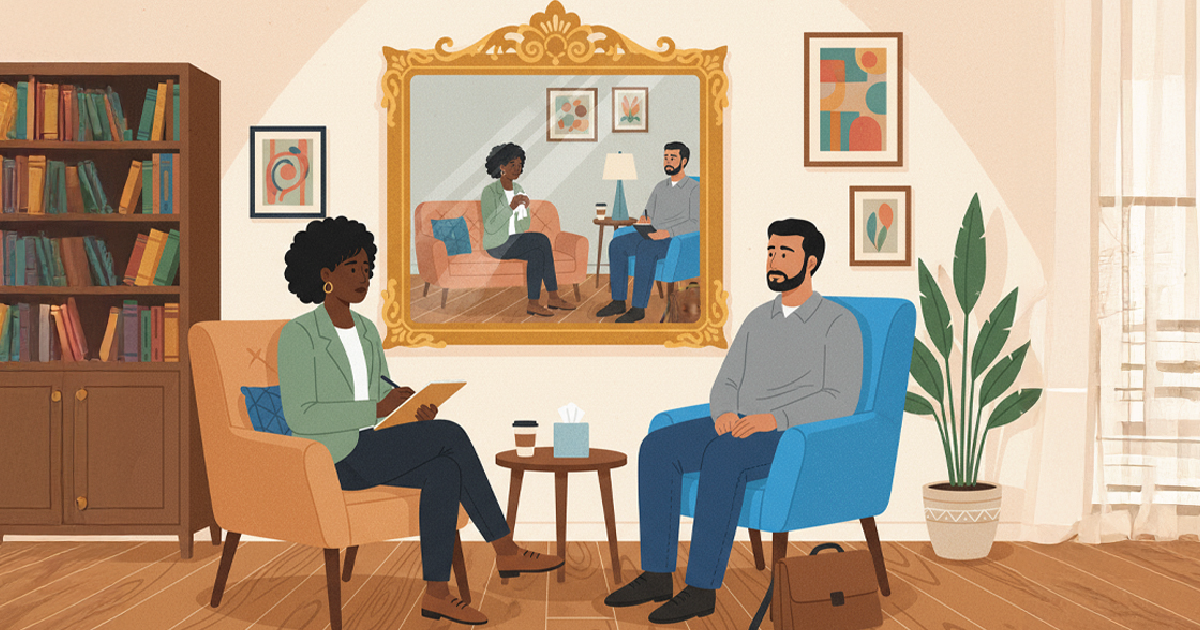The field of psychology offers rewarding and in-demand career options in a wide variety of specialties. Each may require a different level of education and experience, but all focus on providing care and support for those seeking an active role in their mental health. With so many specialties to choose from, every psychology student can discover the area that best fits their desire to provide valuable care to their patients.
Psychologist vs. therapist vs. psychiatrist: psychology is a very detailed field
While all fields of mental health care may seem similar, there are vast differences. Licensing, certification, and registration requirements dictate how professionals in each specialization must approach their practice.
So, what’s the difference between a psychologist and a family therapist?
A general licensed psychologist is a person who has received a Ph.D. to study the mind and mental processes. Their education may include a Ph.D. in Psychology or a Ph.D. in Applied Psychophysiology (or perhaps something more specialized), and they are licensed to diagnose and treat mental health conditions.
A therapist may have obtained a master’s in psychology or sociology and have professional training and clinical work experience, but are not required to have a doctorate. Some therapists do not diagnose certain mental illnesses that require more evaluation, and will refer their patients to someone who can diagnose further, such as a counseling psychologist or clinical psychologist.
Although counseling psychologists and clinical psychologists can both diagnose patients, these fields have more than that in common.
How clinical psychology and counseling psychology are alike
Clinical psychology is the study of how people’s thoughts, feelings, and behaviors interact. It integrates research from the social sciences with treatment methods to better understand, treat, and prevent serious mental health issues. Clinical psychologists are mental health professionals who are licensed to diagnose and treat mental, emotional, and behavioral disorders. They’re also trained to provide psychotherapy to patients and may also be involved in teaching at the undergraduate or graduate level or conducting research on a specific topic.
The American Psychological Association (APA) describes counseling psychology as the practice of mental health that “addresses the emotional, social, work, school, and physical health concerns people may have at different stages in their lives.” Counseling psychologists examine the interactions within their patient’s families, organizations, or groups. They may work in a variety of settings and roles, including hospitals, private practice, and as school psychologists.
Regardless of their focus, all psychologists share a dedication to helping and providing care to those in need. Both clinical and counseling psychology support mental health and wellness. They both center on providing therapy and treatment for individuals with a mental disorder or issue and can provide counseling and psychotherapy. Both clinical and counseling psychologists can also work as researchers, lecturers, or independent practitioners.
The education required for both clinical and counseling psychologists begins with an undergraduate degree. Students typically choose to study psychology from the start or can move to psychology after completing a bachelor’s degree in social work, behavioral science, or a similar field. From there, students may pursue a master’s degree and then a doctorate in psychology. For those who want to specialize in clinical psychology, earning a Ph.D. in Clinical Psychology is highly recommended.
Students pursuing a clinical or counseling psychology program are guided by existential, humanistic, and transpersonal principles. They’ll be required to complete a practicum, internship, or other fieldwork experience to gain the knowledge they need to practice on their own. These valuable experiences provide increased understanding to enhance theory and classroom learning.
Upon earning their degree, graduates can become licensed to practice in their chosen state by passing exams as required by the Association of State and Provincial Psychology Boards (ASPB).
If salary expectations are part of your decision-making process to study clinical psychology or counseling psychology, average salaries for both are the same. According to employment data from the U.S. Bureau of Labor Statistics, annual wages for clinical and counseling psychologists average $82,510, as of May 2021.
How clinical psychology and counseling differ
There are key differences between counseling psychology and clinical psychology—both of which are distinct from therapy or general psychology.
Counseling psychologists often focus on helping individuals pinpoint the stressors in their lives that could be causing mental health concerns, such as an abusive spouse or anxiety brought on by an avoidant parent. It can be incredibly satisfying for a counselor to investigate the root causes of mental health issues and to help patients overcome these burdens. Division 17 of the APA, the Society of Counseling Psychology, provides membership to counseling psychologists who hold a doctorate or master’s degree and has approved a variety of professional practice for psychologists.
Clinical psychology, on the other hand, studies mental disorders more intensely. Practitioners work in clinical environments and their patients usually suffer from severe mental illnesses, such as schizophrenia or severe PTSD. They regularly work with patients long term to help them build resilience, face stress, or cope with their emotions. Clinical psychologists frequently work in hospitals and medical settings. The APA also provides standards for psychologists to refer to in their work.
Study clinical psychology online at Saybrook
Saybrook University’s Psychology Department offers multiple programs for students pursuing careers in the field. The Online Ph.D. in Clinical Psychology is a five-year, full-time program that prepares students to meet the rising demands of the field. Saybrook University’s clinical program is based on humanistic psychology and explores the human experience from a subjective, historical, contextual, cross-cultural, and spiritual perspective. As career opportunities grow, students go beyond the study of the physical body and brain to take a holistic approach and view of mental health.
Have more inquiries? Take a look at the frequently asked questions about our clinical psychology programs, and stay up to date on Saybrook University news, announcements, and more by subscribing to our Unbound digital magazine.

Find Out More
Recent Posts































